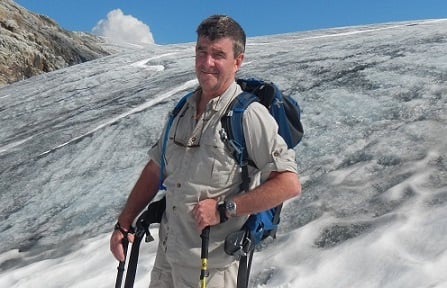He started from the bottom and now he’s making history.
Sixty-three-year-old David Dybdahl was one of the few professionals who studied and mastered the craft of insurance in college – in fact, he finished his BBA with a degree in risk management insurance at the University of Wisconsin-Madison. While he says he was not the brightest student in college, Dybdahl has certainly made a significant mark in the industry, particularly in the environmental insurance segment.
Dybdahl is the president of American Risk Management Resources Network (ARMR), a specialty insurance brokerage firm offering customized insurance products in the United States and Canada. Over the past three decades, he was able to work on the placement of thousands of environmental insurance policies both as the placing broker and as the global environmental practice leader.
Dybdahl served the US Environmental Protection Agency’s Contractor Indemnification Technical Review Panel in 1986, providing the panel with technical information on environmental insurance issues for the United States Department of Defense and Department of Energy.
He also once took the helm of the Environmental Task Force of the National Association of Insurance Brokers and, in 1999, he founded the Society of Environmental Insurance Professionals, an organization advocating for the enhancement of environmental insurance’s utilization as a risk management tool.
Insurance Business had a brief conversation with Dybdahl to get to know his insights about the industry. In this profile piece, he shares the most challenging issue facing the environmental insurance industry. He also outlines his hopes for the industry for the years to come.
Tell us how you got into the insurance industry, what led you to this career?
I am one of the rare people working in insurance who chose risk management and insurance as a major in college. I have both a bachelor’s and master’s degree in insurance and risk management from the University of Wisconsin-Madison. I graduated bottom of my class, the other graduate in my class went on to become the acting Dean of the Business School at UW Madison. I chose insurance as a major because there are few business school students in that major. It made sense for me to go into a field where I would not have to compete with so many students that we were pulling the grading curve up.
What is the most fulfilling aspect of your work in the insurance space?
I work with environmental insurance products, by incorporating the cost of environmental risks into the costs of goods and services through insurance premiums. I believe I help make the world a better place.
What or who do you think has been the secret to your professional success? How do they motivate you?
I have been fortunate to be able to work with some outstanding individuals in my career. I also have a fully supporting family that enabled me to travel for my job four days a week for decades. We all tend to work to the level of performance of the people we surround ourselves with. But I do believe the people most successful in the insurance business are completely self-motivated.
What do you think are the most challenging issues facing the environmental insurance and the overall insurance industry today?
The biggest problem with environmental insurance over the past 30 years is that the insurance distribution channel is not up to the task of engraining the product line in to the mainstream insurance programs. Without educated brokers explaining the gaps in insurance coverage created by pollution/mold/bacteria/category 3 water exclusions in property and liability insurance policies, the demand for insurance products is severely restrained. Today, less than 1% of commercial buildings are adequately insured for water intrusion events as a result.
Meanwhile, the overall insurance business is facing a problem with a very large percentage of the workforce retiring in the next seven years – a lot of knowledge will walk out to the door in that time period. We find it takes us five years before a new employee is fully functional in their job as an environmental insurance broker. Recruiting of young folks 10 years ago was not sufficient; I suspect we are all in for a competency crunch in the insurance business in five years as a result. We recruit young folks in ARMR to avoid the crunch, with 45% of our employees under 30 years old.
What are your hopes for the insurance industry moving forward?
Stay solvent and innovate. Climate change will have a long term effect on the insurance business. Insurance is a pure money in - money out business model. More severe weather events leading to hotter hots, colder colds, wetter wets, and dryer drys will lead to many more insured losses in the upcoming decades. The demand for insurance should increase at twice the growth rate of the economy. As long as the money coming in to the insurance business at a time of increasing losses stays ahead of the money going out, this will be a very good business to be in for the next 100 years.
What advice can you share for those wanting to join the insurance industry?
Get into the insurance business, it is 7% of the economy, educated competition is light, the need for the product is expanding faster than the economy and a lot of the high paid workers are retiring at about the time you will be able to take over their roles. Get as much formal insurance education as you can.
If you were not working in the insurance space, what would you be doing now?
When I grow up I want to be a trout fishing guide in Montana.
What are your passions or hobbies outside insurance?
I am an avid outdoor sportsman.
Related stories:
How assisting veterans honed insurance pro’s customer service skills
Like mother, like daughter


